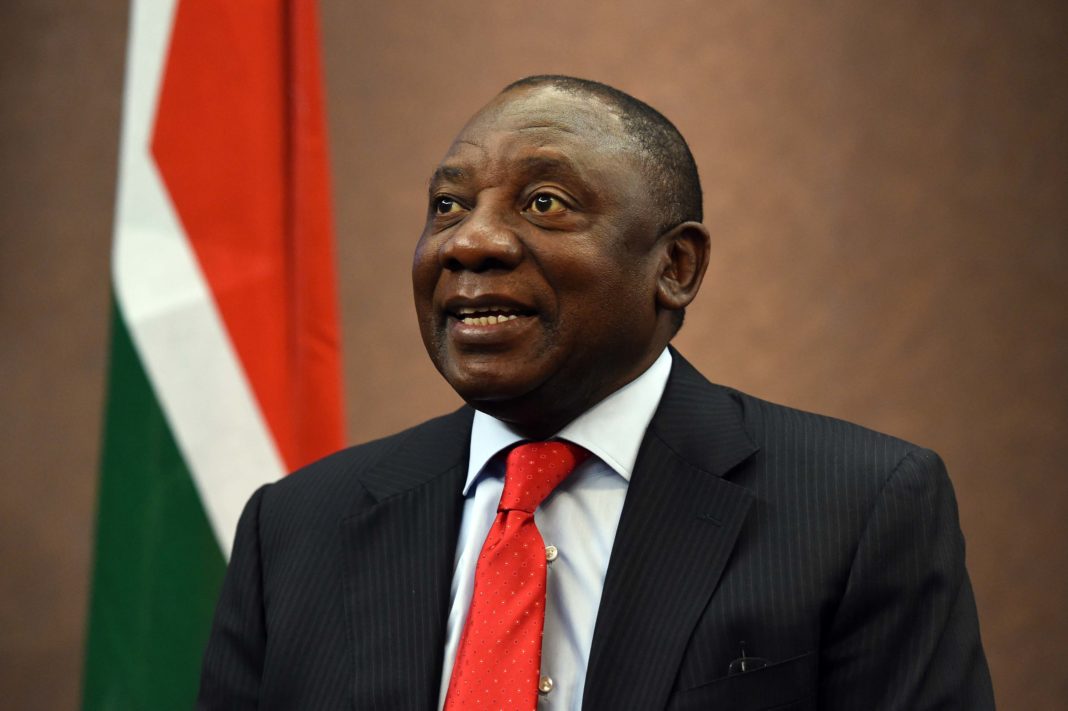South African Deputy President Cyril Ramaphosa has taken the gloves off in the contest to become the nation’s next leader, delivering a scathing speech criticizing ‘the rot’ and widespread patronage plaguing the ruling African National Congress.
Ramaphosa stopped short of openly declaring his candidacy to succeed President Jacob Zuma, 75, in a speech on Sunday, but his address left no doubt that his campaign is now firmly under way. He made several thinly veiled attacks on Zuma, who’s indicated that he’s backing his ex-wife and mother of four of his children, Nkosazana Dlamini-Zuma, for the top post.
Dlamini-Zuma, who’s spent the past few weeks traversing the country drumming up support while guarded by the presidential protection unit, took an early edge in the race to succeed Zuma as ANC leader in December while Ramaphosa had run a subdued campaign, said Ralph Mathekga, an analyst at the Mapungubwe Institute for Strategic Reflection, a Johannesburg-based research group.
“It’s becoming clear that he wants the position of party president,” Mathekga said. “He’s become more decisive and could inflict damage to the campaign of Zuma’s preferred candidate.”
A lawyer who co-founded the National Union of Mineworkers, Ramaphosa, 64, helped negotiate a peaceful end to apartheid and draft South Africa’s first democratic constitution. He lost out to Thabo Mbeki in the contest to succeed Nelson Mandela as president in 1999 and went into business, securing control of the McDonald’s franchise in South Africa and amassing a fortune before returning to full-time politics in 2012 as the ANC’s deputy leader.
Appointed as the nation’s deputy president in 2014, Ramaphosa has spent much of his tenure defending the ANC and government in the face of a series of scandals implicating Zuma. He publicly disagreed with his boss for the first time this month after Zuma fired Pravin Gordhan as finance minister and prompted S&P Global Ratings and Fitch Ratings Ltd. to downgrade the country’s credit rating to junk. The rand plunged as much as 11 percent after Zuma moved to replace Gordhan.
In his speech delivered at a memorial service for the late South African Communist Party leader Chris Hani, Ramaphosa backed a recommendation by the former graft ombudsman that a judicial commission investigate if members of the Gupta family, who are friends with the president and are in business with his son, unduly benefited from state contracts and tried to influence cabinet appointments. Zuma and the Guptas have denied wrongdoing.
Mcebisi Jonas, the former deputy finance minister who alleged that the Guptas offered him a promotion in exchange for preferential treatment, also spoke at the memorial service.
ANC rules discourage members from openly lobbying for leadership posts, and say they should await nomination from its branches before declaring their availability. Several senior party leaders have called for the regulations to be changed.
The ANC has won more than 60 percent of the vote in every national election since it took power in the first multiracial one in 1994, placing its next leader in pole position to become the nation’s president in 2019 when Zuma is due to step down. The party will hold its internal elections at a Dec. 16-20 conference in Johannesburg.
Dlamini-Zuma, 68, had an early edge in the succession battle, according to 11 of 26 analysts surveyed by Bloomberg on Feb. 13 and Feb. 14, while 10 put Ramaphosa ahead, and five said the contest was too early to select a front-runner.
Ramaphosa faces major obstacles in his bid for the ANC’s top job. While he’s received the support of the main labor federation, Dlamini-Zuma has the public backing of the ANC’s Women’s League and part of the party’s youth league, and can expect the endorsement of premiers of three rural provinces known as the ‘premier league’ who are allied with Zuma.
Under Zuma, the ANC suffered its worst electoral performance since the end of apartheid in municipal elections in August, losing control of Pretoria, the capital, and the economic hub of Johannesburg.








